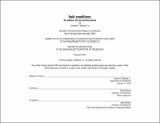| dc.contributor.advisor | Nader Tehrani. | en_US |
| dc.contributor.author | Michael, Joseph R., Jr | en_US |
| dc.contributor.other | Massachusetts Institute of Technology. Dept. of Architecture. | en_US |
| dc.date.accessioned | 2010-08-26T15:17:01Z | |
| dc.date.available | 2010-08-26T15:17:01Z | |
| dc.date.copyright | 2010 | en_US |
| dc.date.issued | 2010 | en_US |
| dc.identifier.uri | http://hdl.handle.net/1721.1/57527 | |
| dc.description | Thesis (M. Arch.)--Massachusetts Institute of Technology, Dept. of Architecture, 2010. | en_US |
| dc.description | This electronic version was submitted by the student author. The certified thesis is available in the Institute Archives and Special Collections. | en_US |
| dc.description | Cataloged from student submitted PDF version of thesis. | en_US |
| dc.description | Includes bibliographical references (p. 136-137). | en_US |
| dc.description.abstract | The past 30 years has seen the emergence of two seemingly unrelated problems: The first problem is the underperformance and looming demolition of Boston City Hall and the unavoidable commercial development of its plaza. The problems of City Hall and its plaza, however, are part of a larger misguided notion of public space for the masses--how, when, and by whom it is occupied. The masses, however, have always and will continue to gather regularly for the ritual of sport. This raises the second problem--the continued suburbanization of the stadium has taken the most dynamic urban spectacle out of the city. To compound this problem, sports franchises use competing cities' desire to host one of a limited set of professional teams as leverage for stadium building. If a city refuses to finance new facilities, a franchise will find another more desperate city willing to put up the funding. Stadia, costly and iconic structures, have an extremely brief shelf life, and though heavily publically funded are almost entirely private. Boston is a self-proclaimed "Titletown." In celebration of sports is the only time that citizens gather en masse in Boston City Hall's public plaza. The iconic Boston City Hall, unlike stadiums, is stubbornly permanent and universally despised. The convergence of these two problems results in a proposal for a new kind of urban form and public space in the heart of Boston. This thesis proposes a new kind of stadium for the City Hall site, one that is not hermetically sealed for only sporting events, but one that engages the city with a high degree of porosity. | en_US |
| dc.description.abstract | (cont.) The inevitable obsolescence of stadia will not be ignored; therefore, this proposal aims to create an urban form which is highly activated independently of sporting events. This proposal also seeks to insert a new kind of public space within a city: one that is of the highly organized and functioning spectacle of a sporting event, and one that is of the modern flâneur. | en_US |
| dc.description.statementofresponsibility | by Joseph R. Michael, Jr. | en_US |
| dc.format.extent | 137 p. | en_US |
| dc.language.iso | eng | en_US |
| dc.publisher | Massachusetts Institute of Technology | en_US |
| dc.rights | M.I.T. theses are protected by
copyright. They may be viewed from this source for any purpose, but
reproduction or distribution in any format is prohibited without written
permission. See provided URL for inquiries about permission. | en_US |
| dc.rights.uri | http://dspace.mit.edu/handle/1721.1/7582 | en_US |
| dc.subject | Architecture. | en_US |
| dc.title | Field conditions : the stadium, the city, and the masses | en_US |
| dc.title.alternative | Stadium, the city, and the masses | en_US |
| dc.type | Thesis | en_US |
| dc.description.degree | M.Arch. | en_US |
| dc.contributor.department | Massachusetts Institute of Technology. Department of Architecture | |
| dc.identifier.oclc | 630606310 | en_US |
